Mugen No Jūnin (Blade of the Immortal): An interview with director Takashi Miike
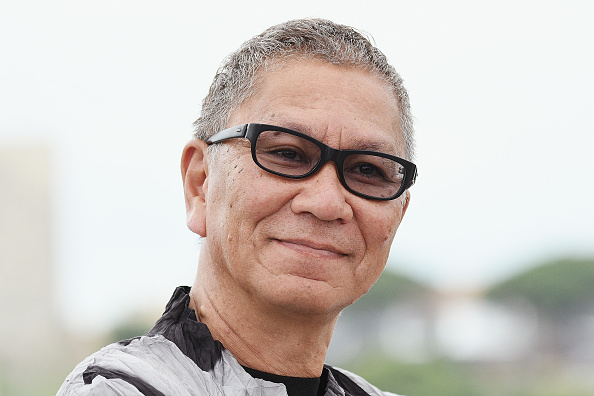
Blade of the Immortal is reportedly legendary Japanese director Takashi Miike’s 100th picture. The film has been shown out of competition at this year’s Cannes and received a positive response from critics. It is very much of the ilk of some of his previous films, including 13 Assassins, with its relentless violence and expertly choreographed fight scenes. We interviewed Takashi Miike a few days after the press screening of Blade of the Immortal in the Palais. We spoke with him about his newest film, previous works and his cinematic inspirations.
Hello, thank you for your time. What makes a perfect action scene?
First of all, that no one gets injured. How much can you push the boundaries of a scene? The cinematography is important, but also to make sure the cast and crew enjoy the action sequence. When you’re doing a violent expression you need to care for each other and have camaraderie between everyone.
The scenes of violence in your film are often quite hilarious and I was wondering whether you enjoy it when these scenes go so over the top that it becomes funny?
Sure, but it’s not like I try to infuse the film with that kind of tone. It’s more organic. I work on the scene, and it is naturally hilarious sometimes. There are hilarious moments. It’s true that when someone is doing something seriously there is a sense of comedy to it. You can try to portray a scene in a beautiful manner, but these scenes are violent so there is a stupidity and absurdness as well. It’s not intentional but it’s just part of the scene.
Was the humour already there in the original manga comics?
If you tried to turn the manga humour into a live action film, the tempo, the pause, the pace wouldn’t quite work. I think this is universal if you have a story that is quite serious. In manga comic books and graphic novels the characters can also express what they are feeling inside when they are gearing up for a fight, for example. I like the main character, Manji. He acts like, “Do I have to go through this again?”. In terms of manga in general, perhaps there is a bit more of that humour in the source material. That’s not something technical though as it’s to do with the author.
You have these big battles at the beginning and the end. Did it take long to shoot this movie? How did you prepare?
For the opening sequence, the shoot itself was four, five days. But with the action all the moves were decided on the spot on the day. It depends on the weather. It depends on whether the ground is solid or muddy. This affects the action sequences and how tired the actors or crew members are. It’s about spontaneously pushing the boundaries on the day, because if you practise the choreography of the action sequences too much, it will look great as a form but it works too well and it loses that edginess and becomes like a beautifully executed dance. The other thing I was mindful of was doing relatively long takes rather than cutting up the action sequences. It helps because all the cast have different abilities and the timing is not going to be perfect and the positions are probably going to be slightly off. But the actors try to correct themselves in those moments. You can tell how Manji is really pushed to his limits in those scenes.
In light of all the humour and violence in Blade of the Immortal, there is also an interrogation of morality as well. The character Rin explicitly asks this question about what is right or wrong. As viewers are we supposed to discriminate between the characters’ motivations and decide who is right and who is wrong?
Even if you’re inclined to look further, the information we have about the characters is limited. Whatever you feel is great, but I think it is more a visceral experience rather than a cerebral experience. Simply, structurally cinema goes towards black and white, good and bad. But even evil guys have a sense of justice, and even the good guys will have a dirty side to them. And so, in the film, Manji is not on either side, he is on the border, he is not a policeman and it’s about the character’s pride and identity. At least in the olden days, this was how we lived our lives. Modern life is tougher I think because we live in a situation where you can’t say what you want to all the time.
What do you do to avoid repeating yourself?
The filmmaker always has to analyse his past work. And I think everyone wants to evolve to be better. So if someone says great words about your work you might want to do more to earn those greats words. You can do different things to gain that praise. But these are desires of the individual artists and have nothing to do with the work itself. Cinema is not a tool to do that. I feel like challenging the characters. Like with Manji, instead of giving him ten enemies to fight I will give him 20. As you work, you don’t think of your individual desires anymore. I feel like I am among the characters in the film, playing the character as a director. It is hard to slash 100 people, and it’s just as hard for the crew. Every time I make a film I just concentrate on each scene. I’m never conscious of leaving a mark of my own behind. People say to me that all my films are kind of the same, and I say, “Yes, I guess I haven’t changed that much!”.
You are prolific. Is it easy for you to go on and obtain financing? Does it get harder with regard to pre-production?
I think there are lots of people who want to make films about stories that I can’t even imagine. I try to be positive about what other people want to create even if at first I don’t understand it. I will say that idea may not work for the modern Japanese audience. It’s quite amazing to have been given this budget for Blade of the Immortal because it is a violent film and the main actor Takuya Kimura is in his 40s. But he is a super-idol in Japan, from a former famous boy band. He’s a singer and a dancer and he’s been working as an actor; he’s been in films. But the characters he’s played up to this point are good people, characters with good hearts. So when we started this project I was like “Let’s try Kimura”, but the producers were like, “He’s not going to do it”. But I insisted that we should at least try asking. He’s had a certain career so he’s at a point where he wants to change and express something he hasn’t tried before, so we were able to get him to say yes. The character is so different from Kimura’s public image, and the violence is pretty cranked up. The Japanese audience is a bit frozen. They don’t know how to react. So it’s been pretty hard getting them to theatres. But I think we were able to make a film that we could only do now and I’m very satisfied with it.
Are blades better than guns?
Blades are much easier to shoot than guns. The velocity is too fast with the latter. One gun in play and it’s just one shot that changes the narrative. Manji uses Katana blades a lot. But what makes those scenes work is the physicality of the recipients, the actors who are being slashed. There is a confrontation between one human being and another. And I think that’s something more intense than just having guns and shooting at each other. It’s more physical. We don’t have a gun culture in Japan. It doesn’t look as good on screen.
Is there a fighting scene from another director that you really love?
When it comes to spaghetti westerns, when I was a child in Japan there were loads shown on television on a Saturday. When I was child I enjoyed it. My childhood photos are myself with two guns, wearing a cowboy hat and vest with a little chick sown on. I was in kindergarten at the time. I was exposed to those schools of action. Then I discovered Bruce Lee and Mad Max. Many years later there has been a great Mad Max, with the same director, George Miller, on Fury Road. He’s aged but his energy has just increased. I was completely shocked when I saw the film. The idea is that as you get older you can’t film because you have less energy, and you can’t make that excuse anymore. The most burning question I had for George when he came to promote the film in Japan was what kind of car did he drive. Then he said a Lexus Hybrid and I was really impressed. George said it in a very shy way.
Fury Road was incredibly difficult to produce. It was a miracle that it happened. Is it harder now to make films that mix genres?
We hail from different countries but as a filmmaker watching that film I thought it was a miracle. The biggest element of that miracle-making is George Miller himself. The methods and the budgets are very different from the first Mad Max film. The system is completely different from a couple of decades ago. With a low budget film you have complete freedom. Who cares what people think? If you make it low budget you may be able to break even. For Blade of the Immortal, as I was making that film I was working on a TV serial aimed at girls being between two and six, without using weapons and instead using the sheer power of music and dance. It’s a fantasy story where the girls use those powers to make a bad person find their true selves and find the goodness in them. And that’s fun too. Both shows are very me. There’s a child in me that enjoys it. I want to continue not being bound to genres.
Speaking of your influences, I was interested to read that you’re a fan of directors such as Paul Verhoeven and David Lynch. Starship Troopers is apparently your favourite film! What influence do these directors have on your work? What do they bring to your unique perspective?
I really love Verhoeven, Lynch and David Cronenberg. I appreciate their genius – although genius is such an easy word to use – but they have amazing ability and energy to create something original and share that with the world. I am not comparable to these people so I try not to envy or imitate them and instead do what I do and enjoy it.
Like the work of those names you mention, your own work can be polarising. Do you feel that filmmakers take fewer risks now in fear of inviting ridicule?
I absolutely agree. It’s political correctness or the desire to find something agreeable. The exhibitors in Japan need 12-18-year-old girls to come to the cinema. So modern Japanese cinemas are centred on manga because this is what these girls are familiar with. I can’t even take it for five minutes, its suffocating. Love stories between girls and boys are immature. The audience know what’s going to happen and where to laugh and at which point to cry. So it’s a reassurance that your reaction is the same as everyone else in the auditorium. Distributors ask for projects that people can identify and empathise with. Jeremy Thomas was also my producer on this film and he was a unique strong character and I hope to continue working with people like that. Even if people deny my work, if ten percent of the audience enjoys it then I’ve made a deep connection with them
Joseph Owen
Photo: Dominique Charriau / Getty Images
Read our review for Mugen No Jūnin (Blade of the Immortal) here.
Read more of our reviews and interviews from the festival here.
For further information about Cannes Film Festival 2017 visit here.



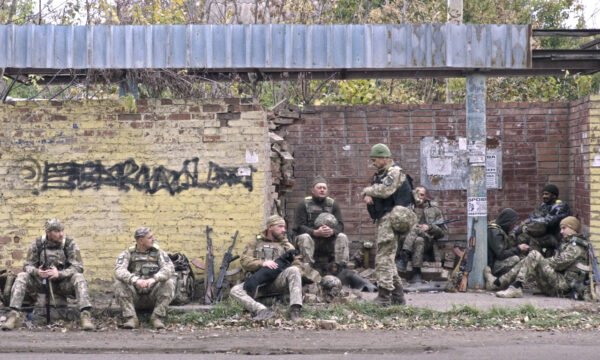

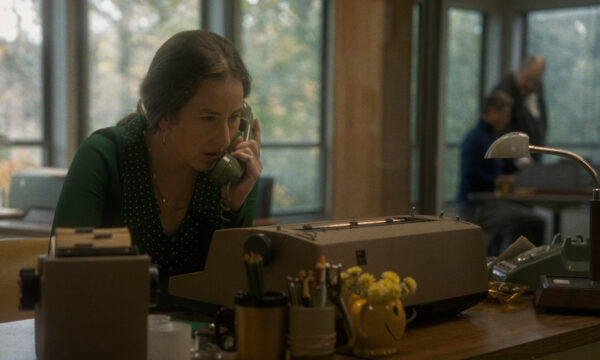


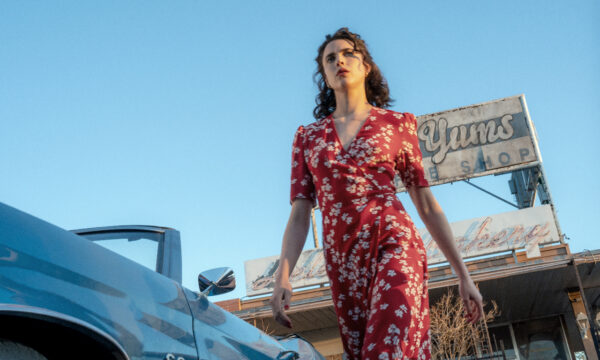
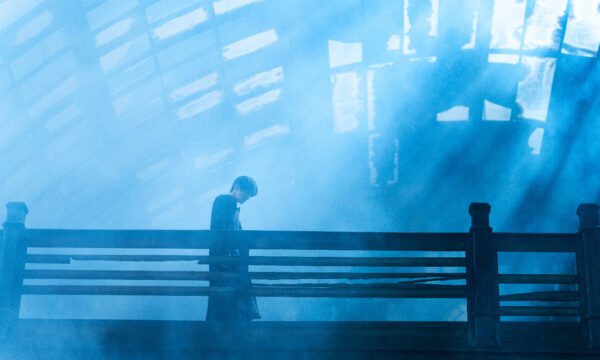
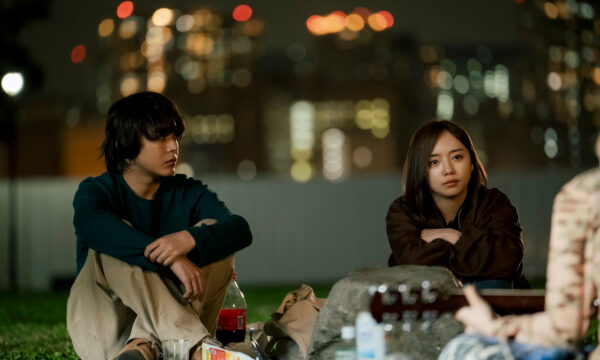


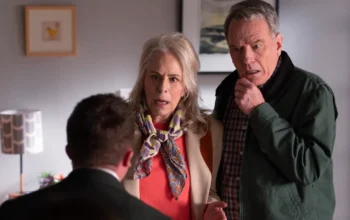
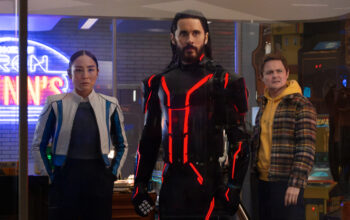
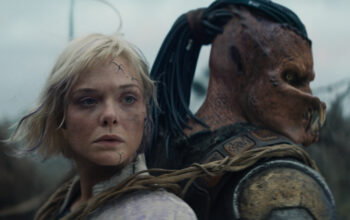







Facebook
Twitter
Instagram
YouTube
RSS